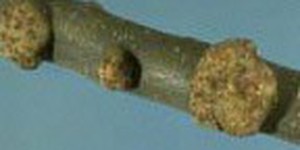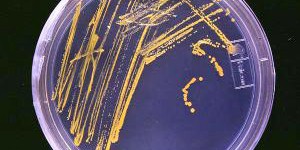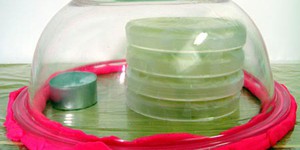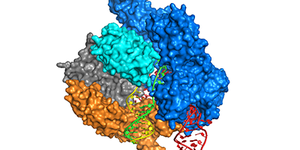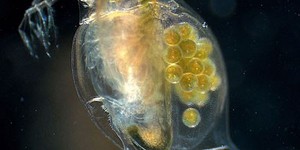Others Like “Minimizing Bacteria in the Thawing and Cooking of Meat” (top 20 results)
|
Have you heard that garlic powder is supposed to inhibit the growth of bacteria? Which do you think would make a better disinfectant: a solution of garlic powder or a solution of bleach? This project shows you a straightforward way to compare the effectiveness of different disinfectants (or other antimicrobial agents), by measuring zones of inhibition on a culture plate.
Read more
Crown gall is a plant disease caused by the soil bacterium Agrobacterium tumefaciens. This project uses tomato plants to investigate whether garlic extract can prevent crown gall infection.
Read more
Germs are everywhere! We try and clean our home with disinfectants, but do we really get rid of all the germs? Find out with this "hands-on" experiment.
Read more
Have you ever noticed that most yogurt containers say they contain "live cultures"? What does that mean? The label is suggesting that the yogurt has living bacteria in it! While some types of bacteria can make you sick, some are actually important to keep you healthy. But individual bacteria are so tiny that you cannot see one with the naked eye, so how can you tell if bacteria are really living in your yogurt? In this science fair project, you will investigate whether yogurt actually…
Read more
Have you ever thought about how fortunate you are to have safe and clean water coming out of your faucet? Many people in undeveloped nations don't have this luxury. But does that mean they can't have clean water at all? Is there an inexpensive way they could use to make their own clean water? In this microbiology science fair project, you will investigate whether or not sunlight can disinfect contaminated water.
Read more
Since ancient times, nothing has said "special" and "dessert" quite like cheesecake! The Romans even sacrificed their form of cheesecake, called libum, in religious ceremonies. Modern cheesecakes are more likely to be eaten at parties and at restaurants than used as sacrificial offerings, but no matter how they're enjoyed, all cheesecakes require some finesse in their baking and mixing to avoid common cheesecake faults, like cracking, collapsing, or failure to rise. In this cooking and food…
Read more
Many scientists are currently very excited about CRISPR, as it has the potential to revolutionize gene editing. But what exactly is CRISPR and what does it do? CRISPR is a novel tool in gene editing that allows the modification of genetic DNA at specific target sites in many different organisms. Researchers have high hopes that this technology can, one day, cure genetic diseases, as mutated DNA sequences can easily be corrected. In this project, you will use CRISPR to mutate a DNA sequence…
Read more
Cake, cookies, pie, ice cream, hot chocolate, lemonade... Yum! What do all these delicious treats have in common? Sugar. In addition to providing sweetness, sugar adds bulk, flavor, and structure to foods. But is it necessary to add sugar to achieve sweetness? Can the same sweetness be achieved using sugar substitutes like artificial or natural sweeteners? In this project, you will test sugar and sugar substitutes and compare the sweetness of each in relation to sugar. In the end, your day will…
Read more
Microbes are everywhere in our environment, but for the most part they escape our notice. This project shows you how to safely culture and study common bacteria from your everyday surroundings.
Read more
Do you know that many consumer products, such as sports clothes, cosmetics, and even food containers contain tiny silver particles? These so-called nanoparticles—usually 1–100 nanometers (a billionth of a meter) in size—are toxic to bacteria and fungi and therefore, are used to prevent them from growing on everyday items you use. But what happens if the silver nanoparticles get into the water; for example, when you wash off your makeup or clean your clothes? Do they…
Read more
|
Explore Our Science Videos
How to Make Slime
How Strong Is Your Hair? – STEM Activity
Magic Triangles - Fun Math Puzzles with Increasing Difficulty




